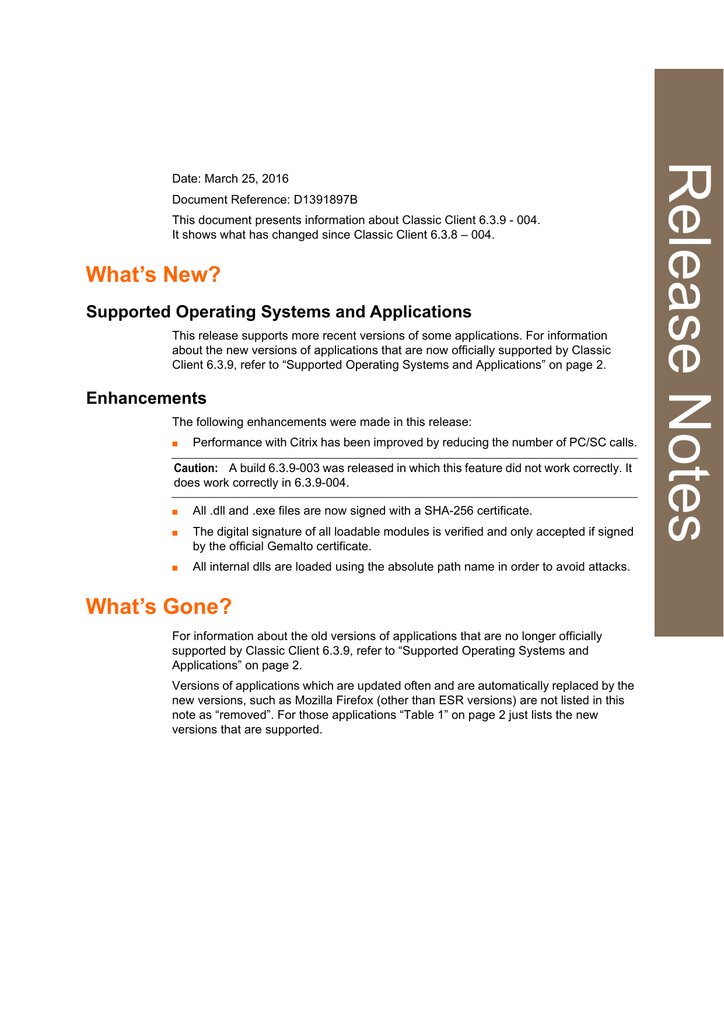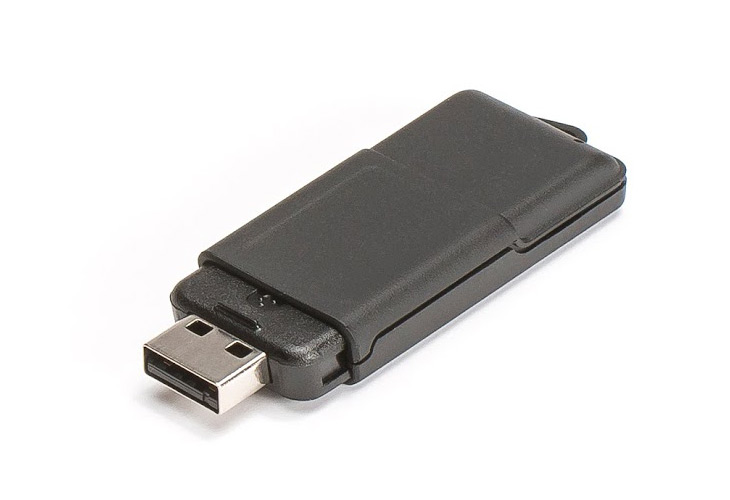You can use your ID software with any card reader that can retrieve data from Estonian ID-card, digital ID and other cards. In this section, we have compiled some instructions about solutions you can try out if your ID-card reader is malfunctioning.
- Using Pinpad Card Reader Drivers
Electronic ID-card use may not be possible, if you use one of the following PinPad (keypad) card readers: • Gemalto CT710 Ezio• OmniKey CardMan 3821 To use the PinPad card reader in Windows, the driver…
- Useful information about smartcard readers
Chip cards may behave differently depending on the operating system. The following lists the basic requirements of each operating system and tested card readers.
- Internet connection lost on MacBook Air when connecting a card reader to the computer
If your computer is a MacBook Air and you are establishing a hard-wire connection using Apple USB Ethernet Adapter, your internet connection is cut off when you connect the card reader to the computer’s USB.
- Problem: mini-PC switches off ID card reader to save power
What to do if the computer switches off the ID card reader to save power?
- Replacing card reader manufacturer’s driver with standard Windows drivers
When keypad card readers are used, problems in a manufacturer’s driver may interfere with use of the ID-card. To solve the problem, replace them with Microsoft WUDF drivers.
Source download
Get released/stable versions
Card reader is not recognized. Shows up as 'STCII Smart Card Reader' C. Shows up as 'USB Smart Card Reader' (not necessarily a problem) D. Does not read your 'Gemalto TOP DL GX4 144', 'Oberthur ID One 128 v5.5 Dual' CAC. Does not read your CAC when using your Mac. NO TE: We are hearing Mac users having problems with the SCR-331 reader.
Go in the Download section. I provide .tar.bz2 archives ready to be built using:
Alcor Micro PCIE Card Reader Drivers Version 1. New package of drivers for Card Reader from the company Alcor Micro. Driver for the card reader is designed for operating systems Windows XP, Windows Vista, Windows 7, Windows 8, Windows 8.1, Windows 10 at 32 or 64 bits. The review for Realtek USB Card Reader has not been completed yet, but it was tested by an editor here on a PC and a list of features has been compiled; see below. Drivers for Windows 32/Windows 64 This driver provides functionality for the Realtek family of USB card readers.
Covadis Card Reader Drivers
The latest README is at README.md.
Get the current source code from git
If you are a C-language developper (or you know what you are doing), you can also access the git developement version. You may need to use the git version to support the latest added readers.
Main CCID/ICCD features supported
- Exchange levels
- short APDU
- extended APDU (with some limitations and lack of support from PC/SC)
- TPDU
- character
- card protocols
- T=0
- T=1
- Protocol Parameter Selection (PPS)
- negociation made by the driver if needed
- highest card/reader communication speed selected
- specific mode supported
- multi-slot readers
- composite CCID devices
- PC/SC v2 part 10 features:
- GET_FEATURE_REQUEST
- secure PIN verify (FEATURE_VERIFY_PIN_DIRECT)
- modify PIN entry (FEATURE_MODIFY_PIN_DIRECT)
- reader PIN properties (FEATURE_IFD_PIN_PROPERTIES)
- Multifunctional Card Terminal reader direct (FEATURE_MCT_READER_DIRECT)
- retrieve reader properties in TLV form (FEATURE_GET_TLV_PROPERTIES)
- bMinPINSize and bMaxPINSize: How to know the PIN sizes supported by a pinpad reader?
- sFirmwareID
- bTimeOut2
- wLcdMaxCharacters and wLcdMaxLines
- wLcdLayout
- send CCID escape commands (FEATURE_CCID_ESC_COMMAND)
- Data rates list
- Localize LCD display messages (Gemalto GemPC PIN PAD, Covadis Véga-Alpha)
- Extended APDU (for T=1 cards only and if your reader is in TPDU mode or extended APDU mode. For T=0 cards this is managed by the application itself.)
- SCardGetAttrib() attributes
- ICCD versions A and B
- RAM consumption efficiency for embedded systems using
--enable-embedded
CCID features not yet supported
- Manage suspend/resume (for example in a laptop)
- Reader clock frequency change
Contact me if you want to see the support of the above not yet supported features and you have a budget.
Non CCID features that I do not plan to support
- read/write on memory cards

In fact I may implement one of these features if you have a budget.
How to get support
If you have a problem and want to get support from me you shall include the following information:
Versions
- CCID driver version
- pcsc-lite version
- the output of the command '
/usr/sbin/pcscd --version'
Platform
- Operating system or GNU/Linux distribution name and version
- Hardware details: Standard compatible PC, special board, Raspberry Pi, etc.
- Smart card middleware name and version
- Smart card reader manufacturer name and reader model name
- Smart card name
Log
Then you shall generate a complete log (do not truncate it).
- If you need to enter the smart card PIN to reproduce the problem then consider changing your PIN before generating the logs as the PIN value will be included in the logs.
- Kill any running
pcscdprocess - (re)start pcscd exactly as described bellow:
- Stop pcscd (using Control-C) after the problem occured and send me the generated
log.txtfile
gdb backtrace
If you experience a crash of pcscd it is useful for me to have a backtrace.
Then copy/paste the complete output in your bug report.
Mailing list
If you have general questions or bug reports you should use the Pcsclite-muscle mailing list.
First search the mailing list archives. Maybe your probem has already been reported and solved. If you have not found a solution then subscribe to the Pcsclite-muscle mailing list and send your request to pcsclite-muscle@lists.infradead.org..
Check reader's compliance to CCID specification
To know if a smart card reader is CCID compliant and should be supported by this driver but is not listed bellow
Just get the source code of this driver, install the build dependencies (see Build-Depends: for Debian systems) and do:
and send me (ludovic.rousseau@free.fr) the generated output.txt file.
If your reader is CCID compliant and you would like to add it to the list of readers I would also need:
- The URL of a web page describing the reader. Typically the web page of the reader description on the manufacturer web site.
- A picture of the reader. In general a picture is already available on the manufacturer web page described above.
CCID/ICCD readers
- Supported readers
- Should work readers
- Unsupported readers
- Disabled readers
All the readers are also included in a big matrix.
Reader selection
You can use an interactive reader selection tool at: Reader selection.
See Reader Selection: find the smart card reader you search for a presentation of the tool.
Authors


The main author is Ludovic Rousseau <ludovic.rousseau@free.fr>.
I reused source code from other free software projects whose authors are:
- Carlos Prados for the PPS and ATR parsing code (taken from his towitoto driver) in
towitoko/directory. - Olaf Kirch for the T=1 TPDU code (from the OpenCT package) in
openct/directory. I (Ludovic Rousseau) greatly improved this code.
Licence
This library is free software; you can redistribute it and/or modify it under the terms of the GNU Lesser General Public License as published by the Free Software Foundation; either version 2.1 of the License, or (at your option) any later version.
This library is distributed in the hope that it will be useful, but WITHOUT ANY WARRANTY; without even the implied warranty of MERCHANTABILITY or FITNESS FOR A PARTICULAR PURPOSE. See the GNU Lesser General Public License for more details.
You should have received a copy of the GNU Lesser General Public License along with this library; if not, write to the Free Software Foundation, Inc., 59 Temple Place, Suite 330, Boston, MA 02111-1307 USA
The complete licence is available at GNU Lesser General Public License, version 2.1
Supported Operating Systems
GNU/Linux
GNU/Linux using libusb 1.0.x and later
Mac OS X
Apple includes my CCID driver (version 1.3.8, released in June 2008) since Leopard 10.5.6. See the mail from Shawn Geddis to have a list of changes.
See the evolutions of the CCID driver in Lion (10.7), Mountain Lion (10.8), Mavericks (10.9), Yosemite (10.10), El Capitan (10.11), Sierra (10.12), High Sierra.
Snow Leopard (10.6.x) and later
Mac OS X Snow Leopard (10.6) and later are supported without patches. To build the driver you need to extract the archive and do:
Leopard (10.5)
Mac OS X Leopard (10.5) is supported with a simple patch. To build the driver you need to extract the archive and do:
NOTE: The execution of ./MacOSX/configure will fail if you have a space character in your current working directory pathname.
NOTE: Apple's version of pcsc-lite installed with Leopard has many bugs and problems.
Tiger (10.4)

Mac OS X Tiger (10.4) uses an old pcsc-lite with some problems:
- A missing call to
IFDHSetProtocolParameters()so the reader is not configured correctly regarding to the card ATR. - A wrong API for
SCardControl()so you can't use a pin pad reader or any other feature provided bySCardControl(). - No way to generate a cold reset. Only a warm reset is possible. Uncomment the line
#CFLAGS='$CFLAGS -DFAKE_CARD_CHANGED'inMacOSX/configureto fake a card movement after a reset to simulate a cold reset. Note thatSCardReconnect()will then fail withSCARD_W_REMOVED_CARD.
You can use this (now unmaintained) patch.
Solaris
The driver should work on Solaris.
I can't test is myself so patches are welcome if needed.
You can find a PC/SC-lite package form Oracle.
FreeBSD
Covadis Card Reader Driver
The driver is available in the freshport.
NetBSD (pkgsrc)
The driver is available in pkgsrc as security/ccid.
Other operating systems
It may or may not work.
Available binaries
The drivers are also available as packages libccid

Comments are closed.